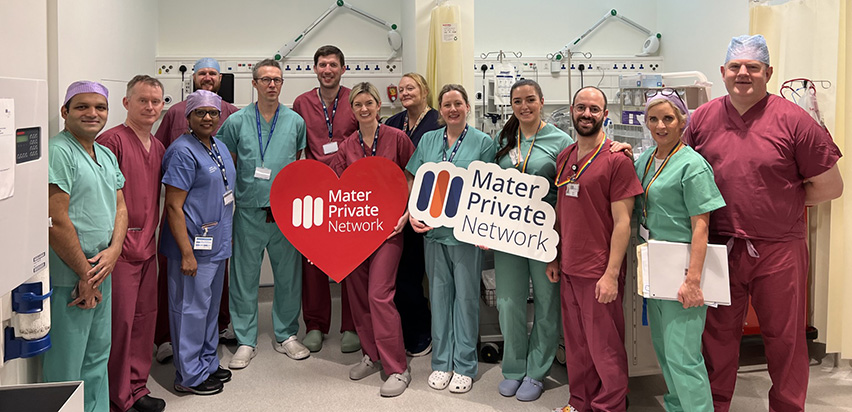Hernias
A hernia is a condition where an organ, such as the bowel, pushes through a weak spot in surrounding area. The major symptom is the bulging of the affected area, and the they happen most often in the abdomen or stomach. Another common hernia involves the spinal discs and causes sciatica.
There are different types of hernia including:
- Hiatus
- Incisional
- Umbilical
Symptoms include pain or discomfort, especially when coughing, doing exercise or going to the bathroom, and can get worse through the day and but improves when lying down.
Hiatus hernias often result in heartburn but may also cause chest pain or pain with eating.
Risk factors
Predisposition to hernias is genetic and they occur more often in certain families, but your risk can be increased by:
- Smoking
- Chronic obstructive pulmonary disease (COPD)
- Obesity
- Pregnancy
- Peritoneal dialysis
- Collagen vascular disease
- Previous open appendectomy
Hernia repair may be done with open surgery or laparoscopic surgery. A hiatus hernia may be treated with lifestyle changes such as raising the head of the bed, weight loss and adjusting eating habits.
Symptoms of hernias
Symptoms and signs vary depending on the type of hernia. A bulge in the groin or in another abdominal area can often be seen and felt. Besides the bulge, other symptoms include pain in the groin or a dragging sensation. Some hernias may be painful and cannot be returned to the abdominal cavity when pushed in. Strangulated hernias are always painful and pain is followed by tenderness. Nausea, vomiting, or fever may occur in these cases due to bowel obstruction. Also, the hernia bulge in this case may turn red, purple or dark and pink.
Risks and complications
Complications may arise post-operation, including rejection of the mesh that is used to repair the hernia. In the event of a mesh rejection, the mesh will very likely need to be removed. Mesh rejection can be detected by obvious, sometimes localized swelling and pain around the mesh area. Continuous discharge from the scar is likely for a while after the mesh has been removed.
An untreated hernia may be complicated by:
- Inflammation
- Obstruction, such as bowel obstruction in intestinal hernias
- Strangulation
- Haemorrhage
- Autoimmune problems
Causes
Causes of hiatus hernia vary depending on each individual, but can include mechanical causes such as incorrect heavy weight lifting, hard coughing bouts, sharp blows to the abdomen, and bad posture.
Other conditions such as obesity, constipation, and chronic lung disease may also increase pressure on the abdominal cavity and cause a hernia or worsen an existing one. If muscles are weakened due to poor nutrition, smoking, and overexertion, hernias are also more likely to occur.
Surgery
Surgery is recommended for some types of hernias to prevent complications like obstruction of the bowel or strangulation of the tissue, although umbilical hernias and hiatus hernias may be watched, or are treated with medication.
Uncomplicated hernias are principally repaired by pushing back, or "reducing", the herniated tissue, and then mending the weakness in muscle tissue (an operation called herniorrhaphy). If complications have occurred, the surgeon will check the viability of the herniated organ and remove part of it if necessary.
Recovery
Many people are able to return to work within a week or two depending on the nature of their job. People who have their hernias repaired with mesh generally recover within a month, though pain can last longer.









